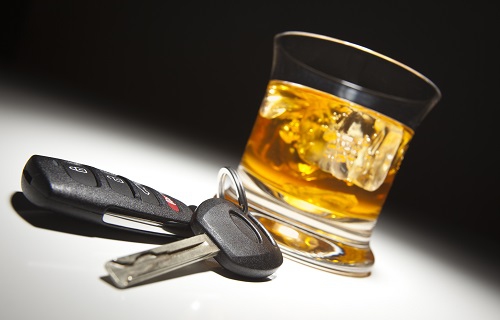When you consume alcohol, it takes some time to enter your system. Once it does, it stays in your bloodstream until your body flushes it out. Excessive alcohol consumption can play with your system and lead to impaired coordination, vision, judgment and reaction. As it increases drowsiness, it also increases the risk for accidents while driving. So if you have alcohol in your system, do NOT drive. Then leaves us the frequently asked question: "how long does alcohol stay in your system?" Now let's find out the answers to this question.

How Long Does Alcohol Stay in Your System?
As mentioned, alcohol takes some time to enter your system and leaves even slower; however, 10% of it leaves through perspiration, breath and the urine, while 90% of it is metabolized. Generally speaking, alcohol leaves the body at a relatively stable pace of .015 BAC (Blood Alcohol Concentration) per hour. It implies that if you're not consuming more alcohol, .015 of what you've already consumed will leave your body with one hour.
Factors Affecting Body Alcohol Levels
Although the speed at which alcohol leaves your body is relatively steady, it may vary in line with:
Your age, your gender and your weight
Your metabolic rate
How much you've eaten while drinking
The types of medications you're taking
The type of alcohol you've consumed
Changes of BAC over Time—Take 0.08 BAC for Example
According to the National Institute on Alcohol Abuse and Alcoholism (NIAAA),"binge drinking" means the Body Alcohol Content (BAC) is 0.08% or higher. So if your BAC is 0.08% or higher, you are legally impaired and can't drive, if you don't want to be arrested for DUI.
If your BAC is 0.08, know the changes of your BAC over time from the following chart:
Time | BAC |
After 1 hour | 0.065 |
After 2 hours | 0.05 |
After 3 hours | 0.035 |
After 4 hours | 0.02 |
After 5 hours | 0.005 |
Therefore, it will take about 5 hours and 20 minutes for your body to metabolize all the alcohol completely. If you know your BAC, you don't need to ask "How long does it take to get alcohol out of your system?" So instead of assuming anything, it's better to get some kind of alcohol tester, like a breathalyzer to measure your BAC more accurately.
The Effects of Alcohol on Driving
How long does alcohol stay in your system? When can you drink after several drinks? It's important to know. Here's the needed information:
Drink 2 beers and your BAC will touch .02%, and you will find it difficult to handle two tasks at the same time.
About 3 beers will take your Blood Alcohol Concentration levels to .05% when you will face difficulty steering and tracking moving objects.
About 4 beers will take your BAC to .08% and that's when you will have a hard time controlling speed and processing information.
It takes 5 beers to hit a BAC of .10%, and that's when your reaction time will slow down and you will find it difficult to stay in your driving lane.
It takes about 7 beers to get to a BAC of .15%. At this BAC level, you will have serious difficulty controlling your car.
Drinking under influence (DUI) endangers yours and others' lives. So even if you know that your BAC is low, it is still a good idea to be on the safe side and ask someone else to drive and drop you off at home.
How to Lower the Alcohol Levels in Your System
Keep in mind that standard drinks of wine, beer or liquor contain pure alcohol that can increase your BAC levels.
Don't be a part of any drinking games or any "chugging" contests.
Don't let anyone force a drink on you. Insist on getting a non-alcohol beverage and drink alcohol only when you really want it.
Learn to restrict yourself from having more than one drink per hour.
Be careful about what you drink, as some drinks, such as zombies, can be deceiving with undetectable alcohol content.
Try to have a non-alcoholic drink in between alcoholic drinks.
Don't gulp a drink. Instead, sip it and give yourself a chance to enjoy its flavors and aromas.
Be sure to eat something while drinking. You can opt for a high protein food such as cheese, meat and peanuts because they can reduce the absorption of alcohol in your body. Also, avoid drinking on empty stomach.
Try to be active while drinking. You will drink more if you sit around and drink. Walking after a drink or staying active in another way will also tell you about any effects alcohol has on you.
Note: In order to stay sober, knowing "how much alcohol is in your system" and "how long does alcohol stay in your system?" is vital. But if you take any kind of medication, make sure to consult your doctor about precautions and prohibitions.
Recommended Blood Alcohol Calculator
If you want to evaluate the alcohol levels in your system, we recommend the following 2 websites:
http://www.healthstatus.com/calculate/blood-alcohol-bac-calculator





View All Comments /Add Comment